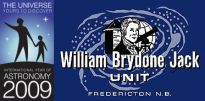You are here
Equipment
Many people ask what type of telescope to purchase when starting astronomy. I have always responded that they should use their 'naked eyes' (meaning no equipment) and a star chart they can get free from many sources. If they insist on seeing more then I will recommend a pair of binoculars... even the ones tucked away in the camping gear for summer nature walks and bird watching. Getting use to the night sky will help you find the more majestic objects in the night sky but without spending a couple of nights or hours under the night sky you will miss many of the wonders available to you without any investment. By watching the night sky you can see all the constellations - many with Mythological basis, meteors, fireballs, satellites, iridium flares, interesting star patterns, the moon, the brighter planets (yes you can see Mars, Venus, Jupiter, and Saturn without a telescope... with binoculars you can see Jupiter's moons and Saturn's rings!). Many nights I will be out with friends for an astronomy event and have my 10" computerized telescope sitting idle as I sit in the lawn chair looking up watching for satellites or meteors and even the International Space Station... without even using binoculars. You can see so much just by looking up... try it some night! The additional links within the Equipment link will discuss some of the different telescopes and their purpose and benefits as well as some limitations. Almost anything is better than nothing... almost... but nothing wrong with naked eye observing... a good way to see how interested you are. Additionally, there are many opportunities to meet with others in our club and try out our equipment to see what you like and the differences before making an investment. Telescopes do not need to be expensive and even used telescopes are typically in 'like new' condition so it is not an expensive hobby... unless the telescope spends its time in the closet while you are surfing the net for Hubble images.
